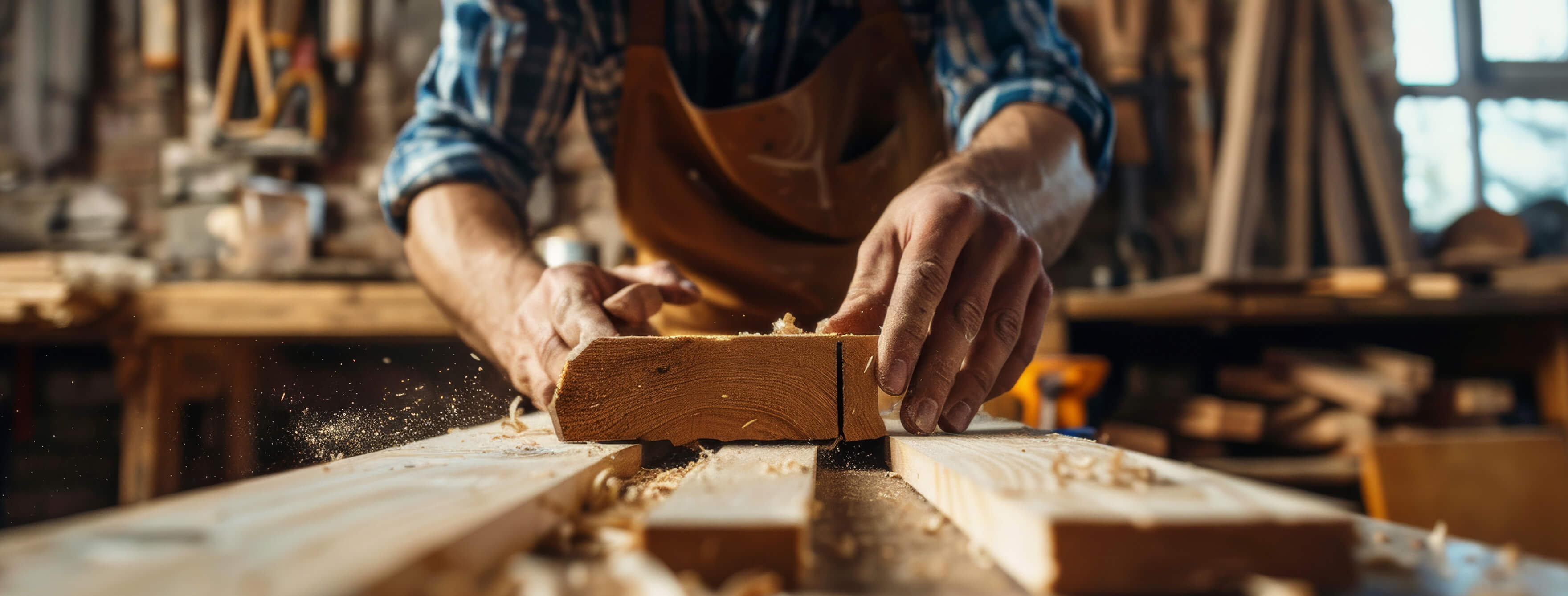Woodworking is one of the most rewarding hobbies a homeowner or DIY enthusiast can take on. There’s something satisfying about turning raw wood into something both useful and beautiful. But if you’re new to the craft, it can feel overwhelming to know where to start. The good news? You don’t need a full workshop or years of experience to enjoy woodworking. With a few tools, some basic skills, and a little creativity, you can start building projects that add charm and function to your home.
In this blog, we’ll explore beginner-friendly woodworking projects, essential tools, and tips to set you up for success.
Why Woodworking?
For homeowners and DIYers, woodworking offers more than just a hobby. It’s a practical skill that allows you to:
- Personalize your home with custom pieces.
- Save money by building items yourself.
- Reduce waste through upcycling and repairs.
- Relax and unplug while working with your hands.
Plus, nothing beats the pride of saying, “I made this.”
Beginner-Friendly Projects
The best woodworking projects for beginners are simple, functional, and don’t require advanced joinery. Here are some easy ideas to get you started:
- Rustic Wooden Shelves
- Shelves are one of the easiest and most useful beginner projects. Cut a few boards to size, sand them smooth, and attach brackets or simple cleats. They’re perfect for kitchens, bathrooms, or displaying décor.
- Wooden Picture Frames
- Frames let you practice measuring and cutting angles while creating a piece that showcases art, photos, or even pressed flowers.
- DIY Planter Boxes
- Small boxes are simple to build and can be used indoors or outdoors. They’re great practice for learning how to cut straight lines and attach pieces with nails or screws.
- Step Stool
- A basic step stool is practical and teaches you stability and weight distribution. It’s a little more advanced than shelves but still beginner-friendly.
- Simple Coffee Table or Bench
- With basic cuts and screws, you can build a sturdy table or bench. Add a stain or paint finish for a professional look.
Tools Every Beginner Needs
Starting woodworking doesn’t mean buying a shop full of tools. Focus on the basics first:
- Measuring Tools: Tape measure, square, and pencil.
- Cutting Tools: A circular saw or handsaw.
- Fastening Tools: Hammer, screwdriver, or drill.
- Sanding Tools: Sandpaper or an orbital sander.
- Safety Gear: Safety glasses, ear protection, and dust mask.
As you grow more comfortable, you can expand to power tools like jigsaws, routers, or table saws.
Tips for Success
- Start Small: Don’t jump straight into complex furniture. Begin with projects that teach you basic skills.
- Measure Twice, Cut Once: Accuracy saves frustration. Always double-check before cutting.
- Embrace Imperfection: Mistakes happen! Learn from them and keep going.
- Practice Finishing Techniques: A coat of stain or paint can elevate even the simplest project.
- Stay Safe: Always use protective gear and follow tool instructions carefully.
Where to Find Inspiration
- Online Tutorials: YouTube channels and woodworking blogs are full of beginner-friendly guides.
- Pinterest Boards: Great for visual inspiration and step-by-step ideas.
- Local Classes: Many community centers and hardware stores offer woodworking workshops.
Final Thoughts
DIY woodworking doesn’t have to be intimidating. By starting with small, manageable projects, you’ll build skills and confidence over time. Each project teaches you something new… whether it’s cutting straight lines, joining boards, or finishing wood for a polished look. Before long, you’ll be ready to take on bigger builds, and your home will be filled with handcrafted pieces you can be proud of.
So grab some wood, dust off your creativity, and start building. Remember: the journey is just as rewarding as the finished piece.




